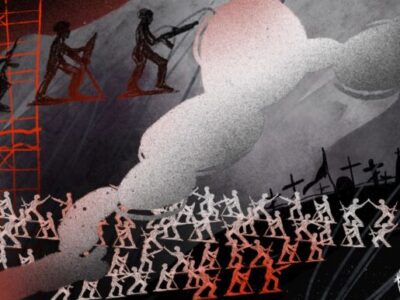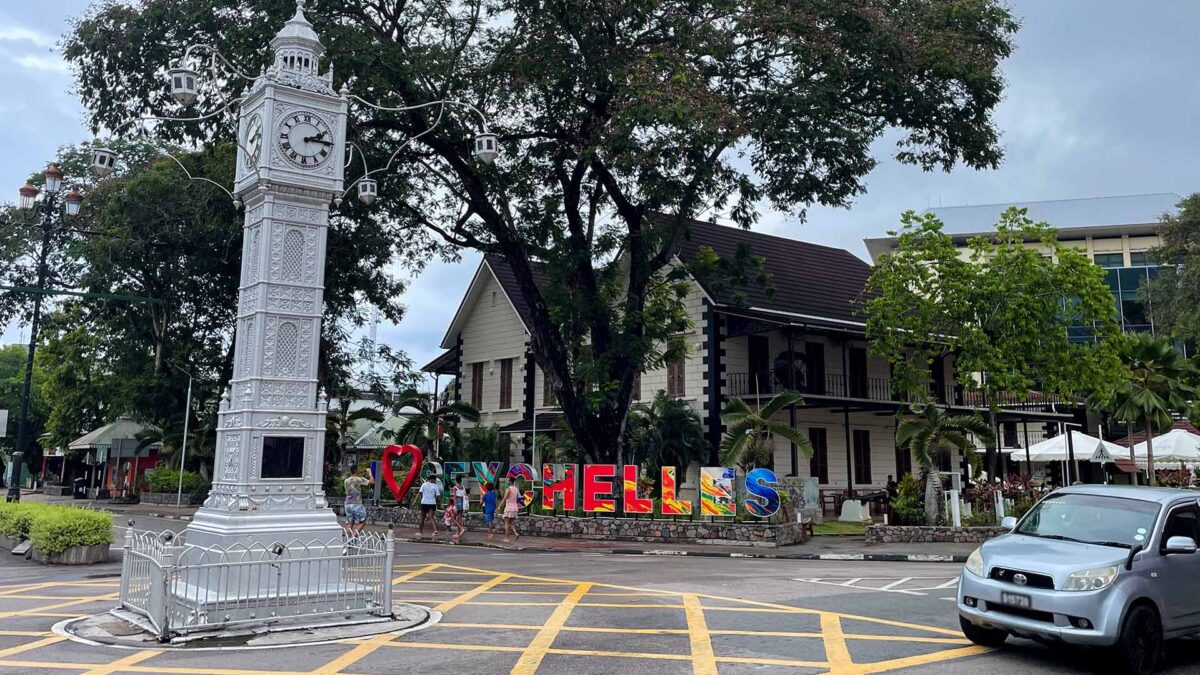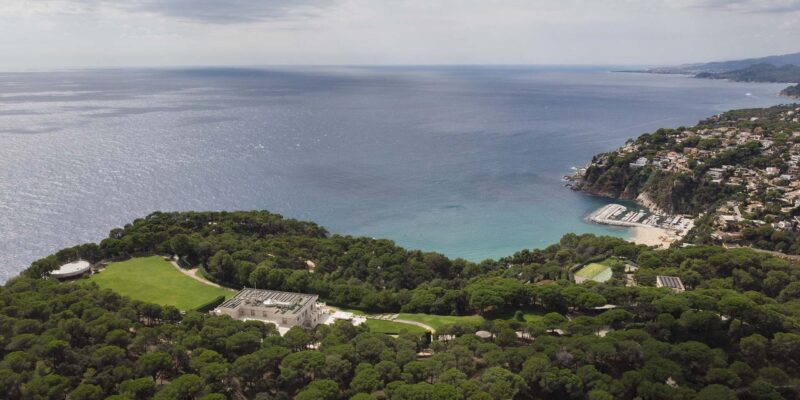
Surrounded by intense scents of pine, thyme and the sea, Gianluca and I carefully wend our way down a narrow forest path that leads to Cala Morisca, a small idyllic cove on the coast in the municipality of Lloret de Mar, northeastern Spain. We are in the final days of summer, 2024.
Halfway down, we encounter a gate. It’s open, but multiple signs warn we’re entering private property, protected by guard dogs and video surveillance. Red and white security tape dangles across the path, encouraging us not to cross.
We do. A further thousand feet down, a closed fence finally blocks our path. Behind it: a compound of posh residential buildings surrounded by a sprawling, well-manicured lawn that stretches to the edge of a cliff, and, beyond that, the Mediterranean Sea. We have reached Can Juncadella, the sprawling estate of Kazakh billionaire Timur Kulibayev.
Multiple surveillance cameras and a few loudspeakers point in our direction. No one bothers us.
Gianluca Battista, a photojournalist from Spanish newspaper El País, and I aren’t breaking any law. The tape, cameras and warning signs notwithstanding, public access to the path is permitted under a July 2023 court ruling, the result of years of litigation between the owners and the Lloret de Mar town council. The town won.
The estate is about 100 acres — about 80 American football fields — and consists of a wooded area and residential areas of 116,455 square feet built up.
With the Mediterranean at our feet, the beauty of the place is overwhelming. “Paradise,” Gianluca murmurs. I can vouch for that. No wonder Can Juncadella is a favored summer holiday destination for the Kulibayev family.
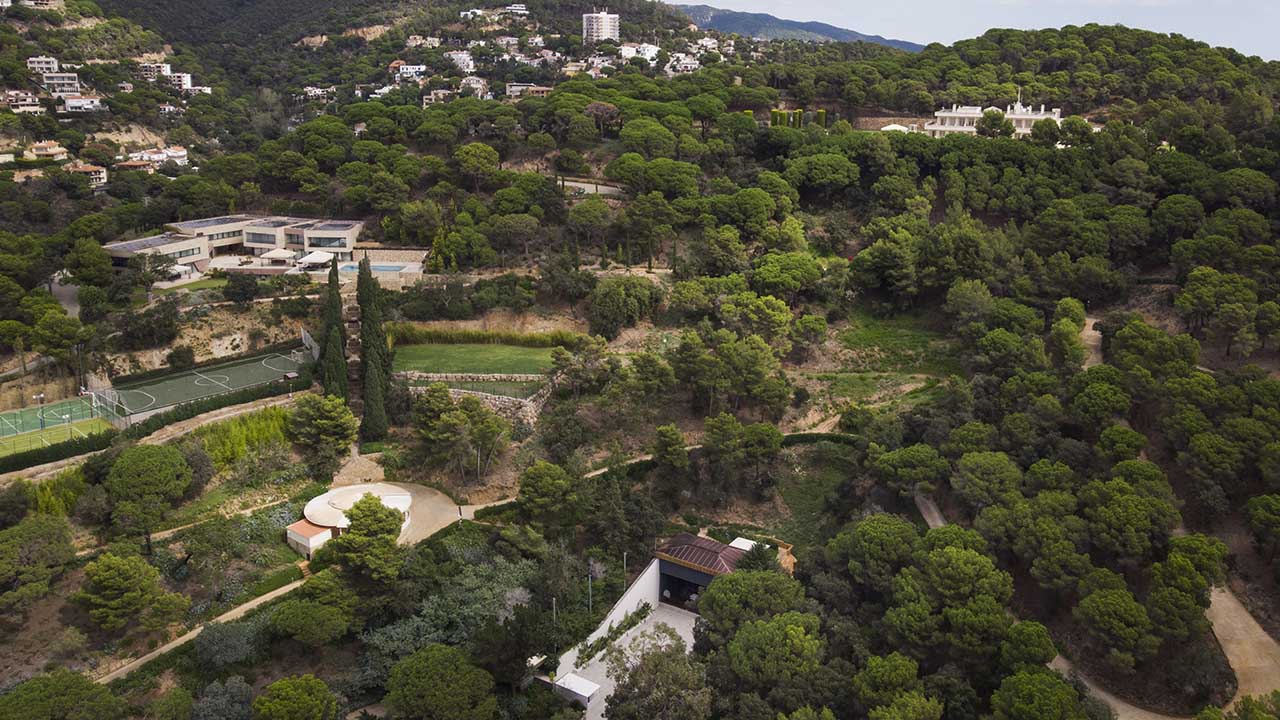
Two years of work for the Caspian Cabals investigation, led by the International Consortium of Investigative Journalists with more than 20 media partners, showed how Kulibayev had ready access to the levers of power through his father-in-law Nursultan Nazarbayev, who ruled petroleum-rich Kazakhstan for nearly three decades. Kulibayev managed to acquire stakes in lucrative private companies that were once state-owned and that allowed his private business empire to grow and make him a billionaire.
He obtained major interests in Kazakh energy, real estate, commodities, banking and construction, held in a sophisticated web of bank accounts, properties and assets, a tangled network of companies and trusts registered in more than 20 countries, from the United Kingdom to Germany, Luxembourg, Singapore and the Cayman Islands.
Caspian Cabals exposed how Western oil company money has empowered anti-democratic actors in Kazakhstan, bolstered Russian President Vladimir Putin’s regime and enriched regional elites. Kulibayev was one of the members of the Kazakh elite who directly benefitted from Western oil company money.
Our investigation also revealed the degree to which Kulibayev has been investing in Spain since 2004. He now owns no less than eight properties in the country, plus an aesthetic medical clinic and six companies managed through a complex corporate structure composed of hundreds of entities.
Our findings were made through a review of company, court and land records, but also thanks to three days of reporting during our trip to Catalonia.
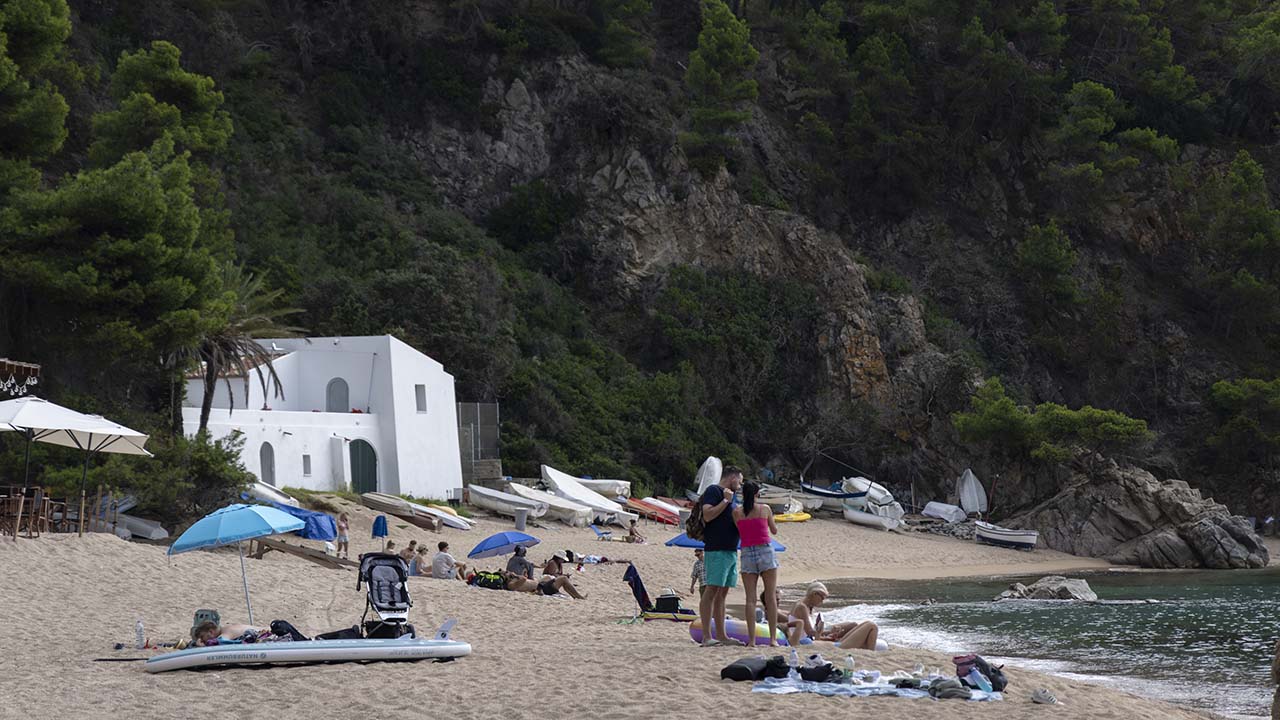
Day 1: An ideal spot for summer holidays and birthday celebrations
We arrive in Lloret de Mar by car from Barcelona, an hour and a half away.
The first destination is Lloret de Mar’s north end, where since around 2010, the Kulibayev family has spent part of the summer, coinciding with the birthday of Kulibayev’s wife, Dinara Kulibayeva, on the Can Juncadella estate.
With a combined fortune of $10 billion, according to Forbes, the couple leads the list of the richest Kazakhs.
But their property in Lloret de Mar is special. In 2024, the family spent more than two months there last summer, according to a citizen of this town familiar with Kulibayev’s life in Spain, but who asked not be named for this article.
From the 1940s until the 1990s, the estate belonged to Catalonia’s wealthy Juncadella family. In the 1990s, it housed a school to train executive secretaries for Japanese multinationals.
Since 2004, Can (Catalan for “house of”) Juncadella has formally belonged to Flinder Data SL, a subsidiary of Steppe Capital Pte Ltd, a Singapore holding company wholly owned by Kulibayev.
The property includes a 40,000-square-foot white two-story mansion. There is also a guesthouse with at least 13 bedroom suites, according to local media, and various sports facilities such as tennis and basketball courts, a mini-soccer field and a swimming pool. The estate is carefully hidden behind vegetation to protect the owners’ privacy. Only aerial and satellite imagery reveal the extraordinary beauty of the site.
The presence of a family of such enormous wealth is noticeable in the constant movement of bodyguards and luxury cars in the summer, according to locals who preferred to remain anonymous.
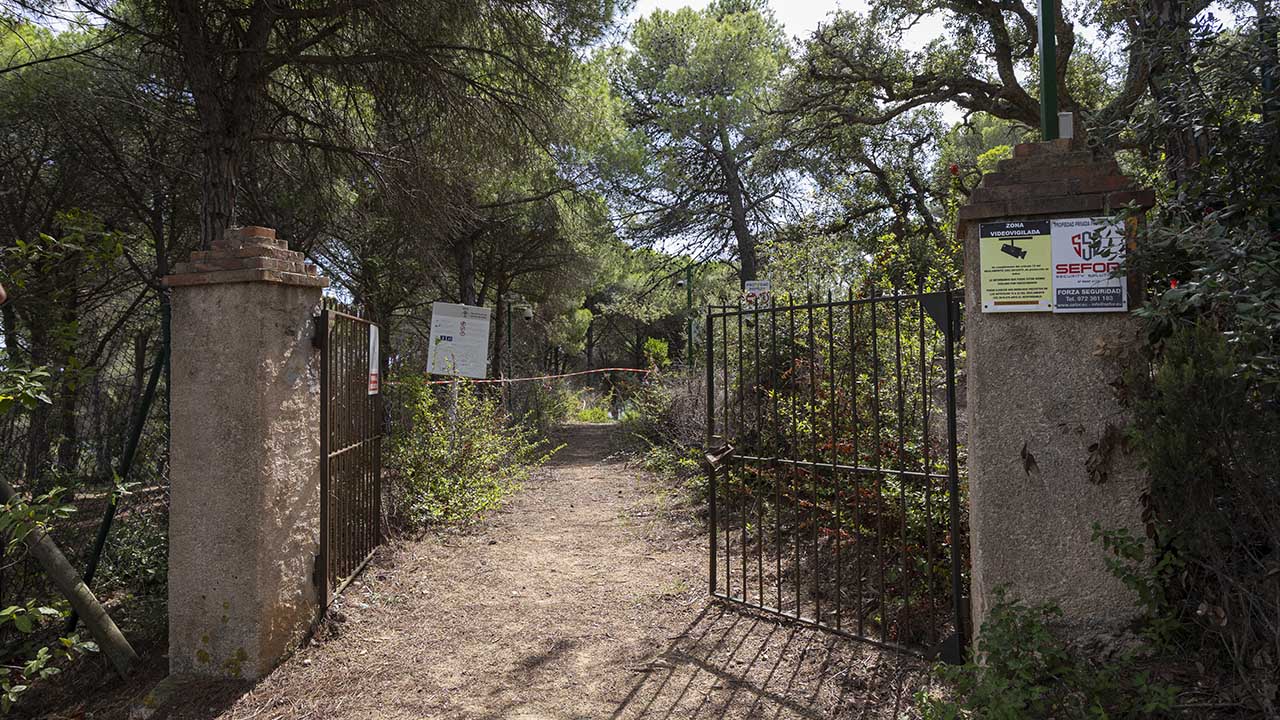
Kulibayev’s extensive security apparatus has created tensions in the community, particularly over the use of the path that Gianluca and I walked down. In a formal request for information to the Spanish government, two members of Parliament in September said that some community members tried to make legitimate use of the path but found themselves “continually encountering the impediment of the passage by the private security of the estate.”
The two lawmakers said this also led to “situations of great tension, threats or the display of weapons of different calibers with the intention of dissuasion by these private agents.” They added that local residents who use the path presented evidence including “photographs and videos where these attitudes can be observed, as well as the weapons used.”
In October, the Spanish government referred the questions to the Catalan regional government but noted that the owners of the property had properly registered contracts for “the provision of surveillance services with weapons” with Spain’s National Register of Private Security since 2013.
A member of the Catalan Parliament filed a similar formal question to the government about the legality of the security measures in November. A response from the Catalan government is pending.
In response to ICIJ’s questions, a law firm representing Kulibayev said: “It is denied that our client’s security team (or any of his other representatives) act in any way which is menacing. In the approximately 10 years that this team has been working for our client, there have been no complaints against the company or its workers from any third parties.”
In response to questions from ICIJ about the parliamentary requests and the use of weapons by the estate’s security guards, Kulibayev’s representative said that they couldn’t “comment on such security matters.”
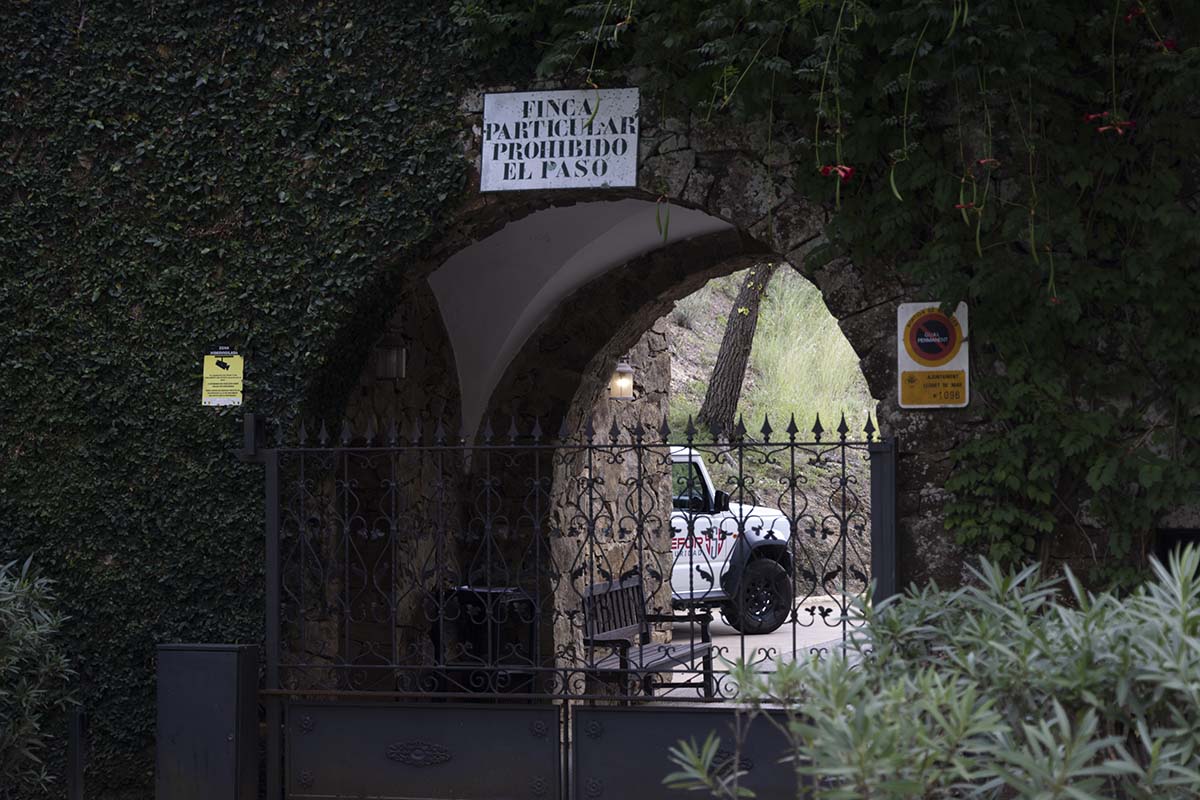
The property was semi-abandoned before Kulibayev purchased it, and the neighbors of Lloret de Mar used the estate for their enjoyment. “Before they bought the estate, I used to go mushroom picking with my grandfather because the best mushrooms in the area are found on the estate,” one local resident told us.
A number of locals mentioned grievances with their super-rich neighbors, especially related to Kulibayeva’s birthday parties.
According to documents obtained by ICIJ as part of Caspian Cabals, on Dinara Kulibayeva’s 43rd birthday in 2010, the family spent hundreds of thousands of dollars — including nearly $650,000 for a 30-foot tall water curtain, laser and gyroscopic jets and other “water effects,” along with fireworks that would become infamous in the collective memory of Lloret de Mar.
Local media reported that Lloret’s residents complained that an elaborate fireworks display at the summertime party created a potential fire hazard in a protected area. Records show the owners of Can Juncadella obtained an exceptional official permit with an agreed-upon list of permitted fireworks. But a subsequent report by local forest rangers said the display ultimately included fireworks that “did not appear in the list that had been drawn up.”
“Our client is not aware of any allegation concerning non-compliance with fire safety rules at the Can Juncadella property in 2010,” a law firm representing Kulibayev told ICIJ. The representatives added: “No investigation has been initiated and no sanction has been imposed.”
Upon Kulibayeva’s next birthday in 2011, an agreement reviewed by ICIJ shows her husband paid $1.5 million for an hour-long private show on the property “with a small band and dancers” by Christina Aguilera.
Reached by ICIJ, the producer for Aguilera who signed the 2011 agreement said: “I really don’t have information I can add to this.” Aguilera’s current producer didn’t respond to a request for comment.
We heard talk of neighbors’ complaints about those parties throughout our reporting — at the seaport, in the restaurants, on the beach and elsewhere.
After talking to some residents in Lloret de Mar, Gianluca and I drive nearly an hour north to the town of Castell-Platja d’Aro, featuring a luxury residential area overlooking calm Mediterranean waters. It is called S’Agaró. Many of the properties in S’Agaró are owned by Russians, Kazakhs and Central and Eastern Europeans.
ICIJ revealed that Kulibayev purchased two S’Agaró villas, in 2021 and 2023, through the Spanish company Diada Investment & Real Estate SL, which in turn is a subsidiary of the Kazakh firm Verus Praedium International LLP owned by Kulibayev.
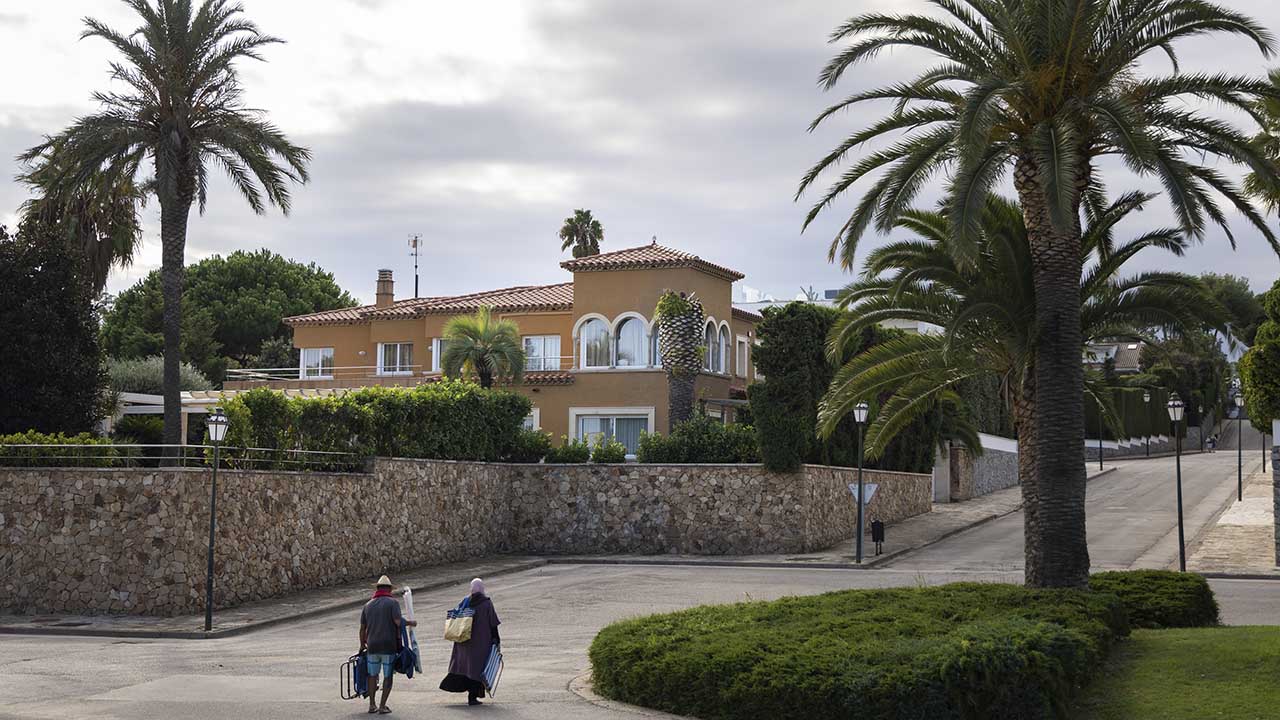
That company also holds two other properties in Mont-Roig del Camp in the province of Tarragona. One of the properties, “Villa Greta,” an 11.2-acre estate featuring 26,000 square feet of buildings, fronts onto the Mediterranean.
However, we only went to S’Agaró.
We also pass by a villa that Kulibayev’s father, Askar Kulibayev, has owned in S’Agaró since 2018 through a Spanish-registered company, Domymar Quality SL. The elder Kulibayev was a Soviet-era Communist Party boss in the province Guryev (now Atyrau) between 1985 and 1990 and minister of construction and housing in the independent Kazakhstan during the 1990s.
Day 2: Between public pathway headaches and golf club serenity
I drive back from Barcelona to Lloret de Mar contemplating a landscape of stunning natural beauty, the Mediterranean always to the east out the passenger’s side window. I go back to the beach, to the restaurants and to the seaport to talk to more people.
The area around the port and the beach (where Kulibayev swims more than a kilometer a day) is a rich source of information.
The family has left only a few days before, locals say.
At the Lloret de Mar town hall, the mayor, Adrià Lamelas, tells of the controversy surrounding the public access to the pathway that crosses Kulibayev’s Can Juncadella property.
The mayor explains that a July 2023 ruling obliges holding company Flinder Data SL to reopen the pathway for public use. Now, he says, Lloret de Mar town council and Kulibayev’s lawyers are discussing a new layout for the pathway that would safeguard the Kulibayev’s security and privacy.
“I am trying to get them to pay for it and to make a new path that is satisfactory for all parties. If the owners finally decide not to pay for a new road, then we will force them to comply with the final court ruling of July 2023 and open the entire original path for the enjoyment of the public,” said Lamelas. “I have set a deadline of December this year to reach an agreement with them.”
Kulibayev’s legal representatives told ICIJ that the judgment “does recognise the existence of a public coastal pathway, however it does not specify its exact course.” They confirmed the oligarch’s representatives in Spain and the municipal corporation are “working together to give effect to the ruling and facilitate compliance with it.”
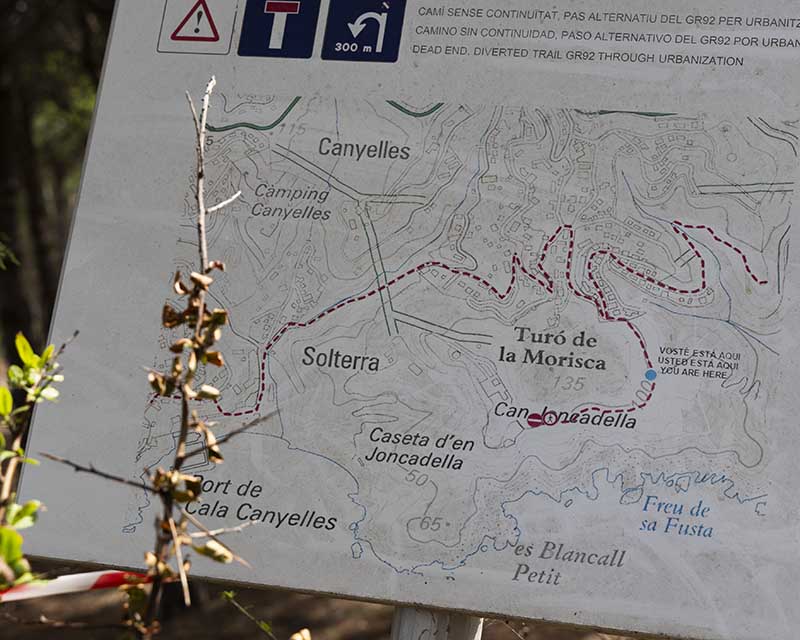
Jordi Palaudelmas, from the SOS Costa Brava activist group, told ICIJ that he has met Kulibayev on the beach a few times where he swims. “If you wave at him, he waves back,” Palaudelmas said. Xavier Crespo, a former Lloret de Mar mayor, described Kulibayev as “polite and shy.”
SOS Costa Brava is a federation of 26 environmental organizations whose aim is “to collectively fight against a new wave of urban and infrastructure projects threatening to permanently erase the essence of the Costa Brava” (the northeastern Mediterranean coast of Spain), according to its website.
However, Palaudelmas and his organization are battling to ensure that the court ruling is fully enforced and that the original path is reopened. He thinks that court rulings are there to be complied with and the city council must enforce them. “It is a blatant case; this speaks volumes about the democratic quality of a country. What is at stake is the democracy of a country,” he said.
Half an hour by car north of Lloret de Mar lies Camiral Golf and Wellness, boasting “one of the top 10 golf courses in Europe and the #1 golf course in Spain,” according to its website. This club is set in an idyllic landscape between the Mediterranean Sea and the Pyrenees.
Inside the resort, which includes a hotel from which people freely came and went, everything exudes luxury, at least in one reporter’s eyes: the cars, the manicured gardens, the posh sports facilities, the security and the five-star Hotel Camiral. There, we are set to visually confirm another discovery ICIJ came across in land and company records.
In 2012 and 2013, Flinder Data SL bought two plots at the resort, 1.7 acres in total, on which sits a villa of avant-garde design, with a pool built later. Kulibayev and his family usually go to play golf there when they are in Spain, according to several sources.
The property is designed for maximum privacy. At street level, one can barely see the façade as it was built on a terraced plot and the apparently most visible part faces a pine forest located in front of one of the golf course greens.
Day 3: A medical clinic and a luxury villa
Our third and last reporting day, we focus on two objectives, all in Barcelona: an aesthetic medicine clinic, and a new villa in the elevated, wealthier side of the city, known as “la zona alta de Barcelona.”
The port area is packed with people, yachts and superyachts of those attending the 37th America’s Cup sailing competition taking place during our visit.
I head towards the district of Sarrià-Sant Gervasi, a high-class neighborhood of Barcelona, to meet another El País photographer at a former religious school now converted into Hospital Regenerative Medicine Solutions, soon to be opened to the public, according to an employee we met.
Restoration of the interior and exterior of the four-story building is almost complete. The façade of the main entrance shines in golden tones next to an outdoor courtyard flanked by shrubs and trees.
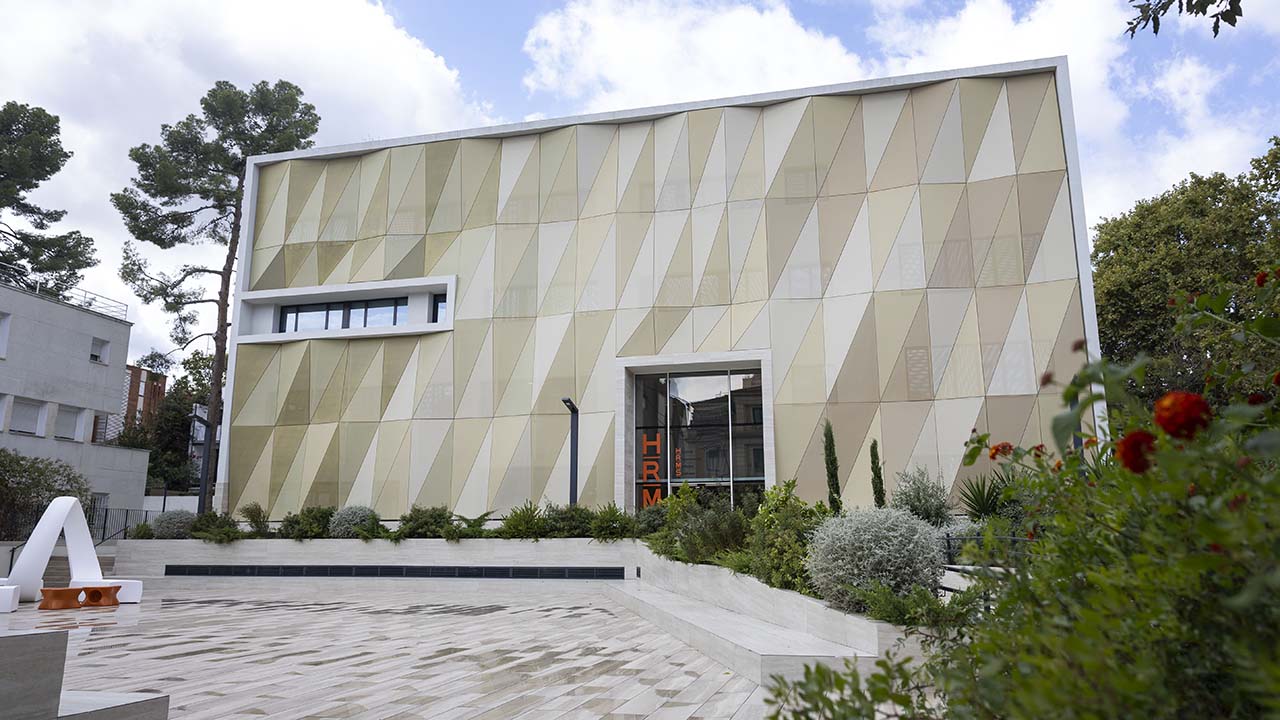
In 2015, the company Regenerative Medicine Solutions SL bought the property. This Spanish company is indirectly owned by Kulibayev, who holds 85% of the shares through Steppe Capital.
Ten minutes by car from the clinic and up towards the mountains that flank Barcelona to the west, we find a modern villa extending over a manicured tree-lined property of 1.2 acres. At its feet is the city of Barcelona; on the horizon, the Mediterranean Sea. Up the hill: a pine forest.
Construction started in 2014, and ICIJ verified that it is nearly concluded. According to the website of the architecture firm developing this luxury residence, the property will include five bedrooms, a gym, a spa, a home cinema room, an outdoor pool and a solarium, among other facilities. The villa is owned by Kulibayev’s company Recoletos Management SLU.
The villa, like Can Juncadella back in Lloret de Mar, is protected, according to signs posted nearby, by Forza Seguridad SL, a security company that is part of a network of companies held through Kulibayev’s Steppe Capital group.
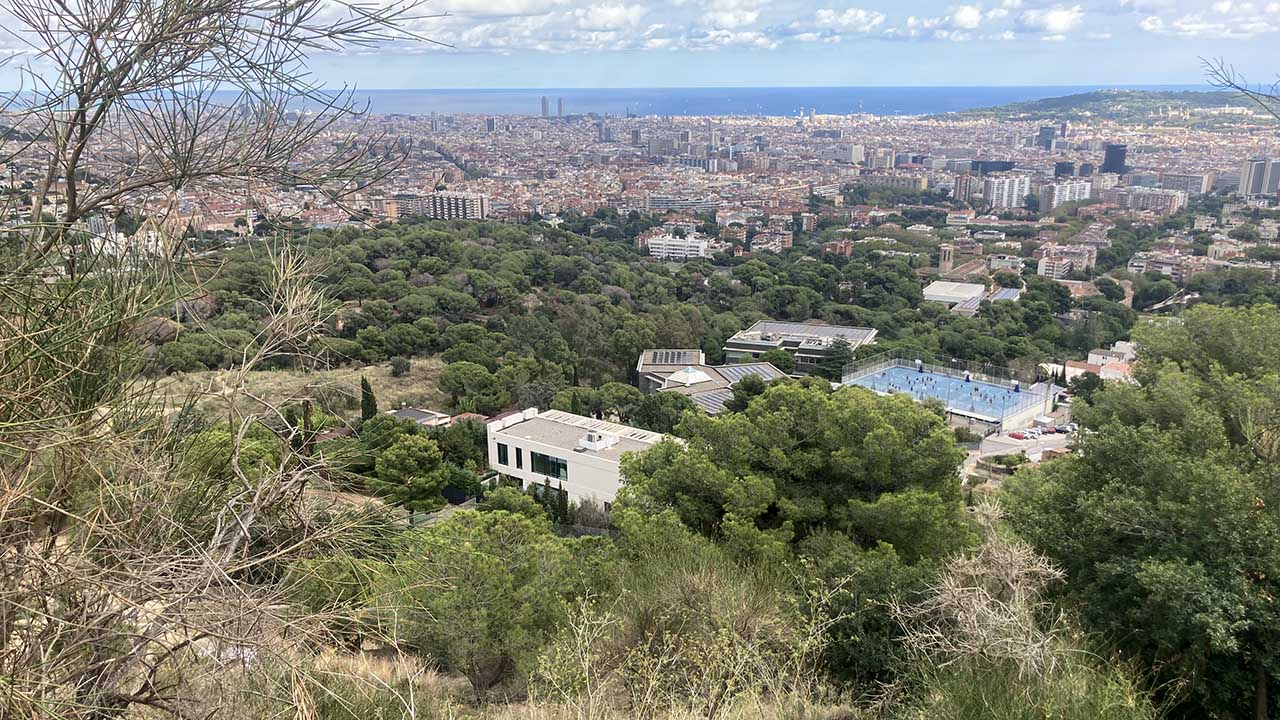
In the 1980s, while playing for FC Barcelona, Argentine soccer star Diego Armando Maradona lived on the same street.
Colombian singer Shakira and Spanish former soccer player Gerard Piqué lived together in the same neighborhood, known as Pedralbes, until their separation in 2022.
The second El País photographer and I try to find good angles to take pictures of the house, but the property is designed with walls and vegetation to provide as much privacy as possible. Neither at street level nor from the top of the hill can we get good angles.
Anyway, we can’t help thinking that we are enjoying a privileged view of the whole city of Barcelona and the Mediterranean that laps it.
In response to an ICIJ letter, the law firm representing the Kazakh businessman wrote: “Mr Kulibayev and his family have acquired properties near to each other in Spain, with additional property for staff working at the residences and for staff that travel with the extended family. Other than the medical business, the properties are used from time to time by extended family and staff. The family have been privately holidaying in Spain for many years.”




